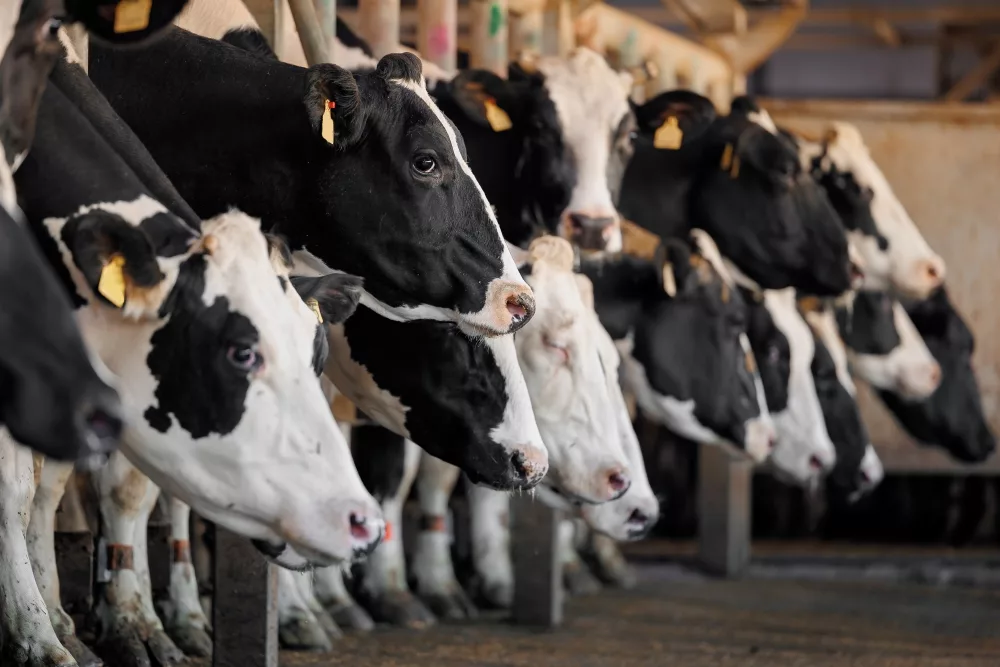The Department of Agriculture Wednesday mandated testing for H5N1 of dairy cattle that cross state lines. The move is to protect the U.S. livestock industry from the threat of avian influenza.
Before interstate movement, dairy cattle are required to receive a negative test for Influenza A virus at an approved National Animal Health Laboratory Network laboratory. Owners of herds in which dairy cattle test positive for interstate movement will be required to provide epidemiological information, including animal movement tracing.
USDA has identified spread between cows within the same herd, spread from cows to poultry, spread between dairies associated with cattle movements, and cows without clinical signs that have tested positive.
On April 16, APHIS microbiologists identified a shift in an H5N1 sample from a cow in Kansas that could indicate that the virus has an adaptation to mammals. USDA has not found changes to the virus that would make it more transmissible to humans and between people.
The Food and Drug Administration confirmed again this week pasteurization of milk consistent with the federal Grade “A” Pasteurized Milk Ordinance destroys harmful pathogenic bacteria and other microorganisms, including Highly Pathogenic Avian Influenza.
The data cited by the FDA is consistent with other studies demonstrating that the legally required temperature and time for milk pasteurization will readily inactivate HPAI. Viral fragments detected after pasteurization are nothing more than evidence that the virus is dead and have zero impact on human health.
Further, federal rules prohibit milk from sick cows from entering the food supply chain. The National Milk Producers Federation and International Dairy Foods Association encourage the FDA to continue to gather scientific data and information that is consistent with its plans.
The FDA has also remained consistent in its vigilance against raw milk consumption. Raw milk is a key vehicle in the transmission of human pathogens. As this situation continues to evolve, the dairy organizations strongly discourage the consumption of raw milk.

